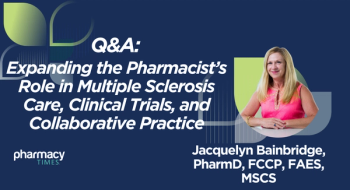
- June 2012
- Volume 3
- Issue 3
Multiple Sclerosis
Omega-3 Fatty Acids Have No Effect on MS Patients
Although some researchers believe that omega-3 fatty acids have a protective effect in patients with multiple sclerosis (MS), a new study suggests otherwise.
The study, from the 4-year Omega- 3 Fatty Acid Treatment in Multiple Sclerosis (OFAMS) trial, was published online on April 16, 2012, in the Archives of Neurology. It was conducted in 13 public neurology departments in Norway from 2004 to 2008. It enrolled 92 patients aged 18 to 55 years with relapsing-remitting MS. Half of the subjects received omega-3 fatty acids in the form of 350 mg of eicosapentaenoic acid and 850 mg of docosahexaenoic acid daily, and the other half received placebo. After 6 months, all 92 patients received interferon therapy.
The results were not significantly different between the groups, and there were no differences in fatigue or quality of life. Development of magnetic resonance imaging (MRI) lesions was similar in both groups, and there was no difference in relapse rate. Although omega-3 fatty acids, either in fish or supplement form, seem to have no effect on symptoms or disease progression in patients with MS, they do have definite benefits in other health areas, such as heart health. In addition, many omega-3 fatty acid supplements also contain vitamin D, which has been shown in studies to have a potentially protective effect in MS.
Multiple Pregnancies May Protect Against MS
In a new study conducted by researchers from the Murdoch Children’s Research Institute in Melbourne, Australia, it was discovered that women who have multiple pregnancies may have a lower risk of developing MS.
The study, published in the March 7, 2012, issue of Neurology, had a case-control design. It enrolled 282 Australian men and women aged between 18 and 59 years who had a first clinical diagnosis of MS and compared them with 542 people without symptoms. They then calculated the number of pregnancies in women lasting at least 20 weeks and the number of live births. For men, they recorded the number of children born. The investigators found that women who had more births experienced a reduced risk of a first clinical demyelinating event (odds ratio 0.51, 95% confidence interval, 0.36-0.72).
Researchers believe increased estrogen may be beneficial in protecting against MS, along with fetal microchimerism with a permanent donation of fetal cells to maternal circulation. One possible reason that there is an increased proportion of women developing MS over time is the trend of women having children later in life. Because other studies have shown that multiple pregnancies have no effect on the development of MS, additional studies are needed to confirm these results.
Early Intervention the Best Approach in Treating MS
A new multicenter study adds more evidence that in order to best treat MS, the earlier treatment is started, the better the outcome.
The study was presented at the American Academy of Neurology’s 64th Annual Meeting. It enrolled 517 patients who had a first clinical episode suggestive of a demyelinating event, such as tingling, numbness, muscle weakness, or problems with balance, along with at least 2 clinically silent brain lesions detected by MRI. They were then randomly assigned to receive interferon beta-1a 3 times or 1 time a week, or placebo for 24 months or until a second clinical episode.
The researchers found that early treatment significantly delayed clinically definite MS. Patients who received early treatment were also less likely to meet the McDonald criteria for MS. The researchers also found a slight benefit in the patients who received treatment 3 times a week as opposed to once a week. Most importantly, however, the study demonstrated even more evidence that early treatment trumps watchful waiting in patients who are suspected of having MS, and that early treatment may make patients less likely to progress to clinically definite MS at 3 years than those who receive later treatment.
SPT
Fast Fact: It is estimated that 2,500,000 individuals have multiple sclerosis.
About the Author
Michael C. Wisotsky, PharmD, RPh, practices in Shrewsbury, New Jersey.
Articles in this issue
over 13 years ago
Vertex Pharmaceuticals, Inc's Kalydecoover 13 years ago
Bristol-Myers Squibb's Sprycelover 13 years ago
7 Reasons Why Specialty Drug Dispensing Will Boomover 13 years ago
Summer/Fall 2012 Meetingsover 13 years ago
Oncology Drug Management: Technology Solutionsover 13 years ago
Walgreens Specialty Pharmacy's Oral Oncology Management Programover 13 years ago
Focus on Oncology: A Look at BioPlus Specialty Pharmacyover 13 years ago
Oncologyover 13 years ago
Supply Chain Innovationsover 13 years ago
Exploring Nursing Adherence Programs for Oral OncolyticsNewsletter
Stay informed on drug updates, treatment guidelines, and pharmacy practice trends—subscribe to Pharmacy Times for weekly clinical insights.


























